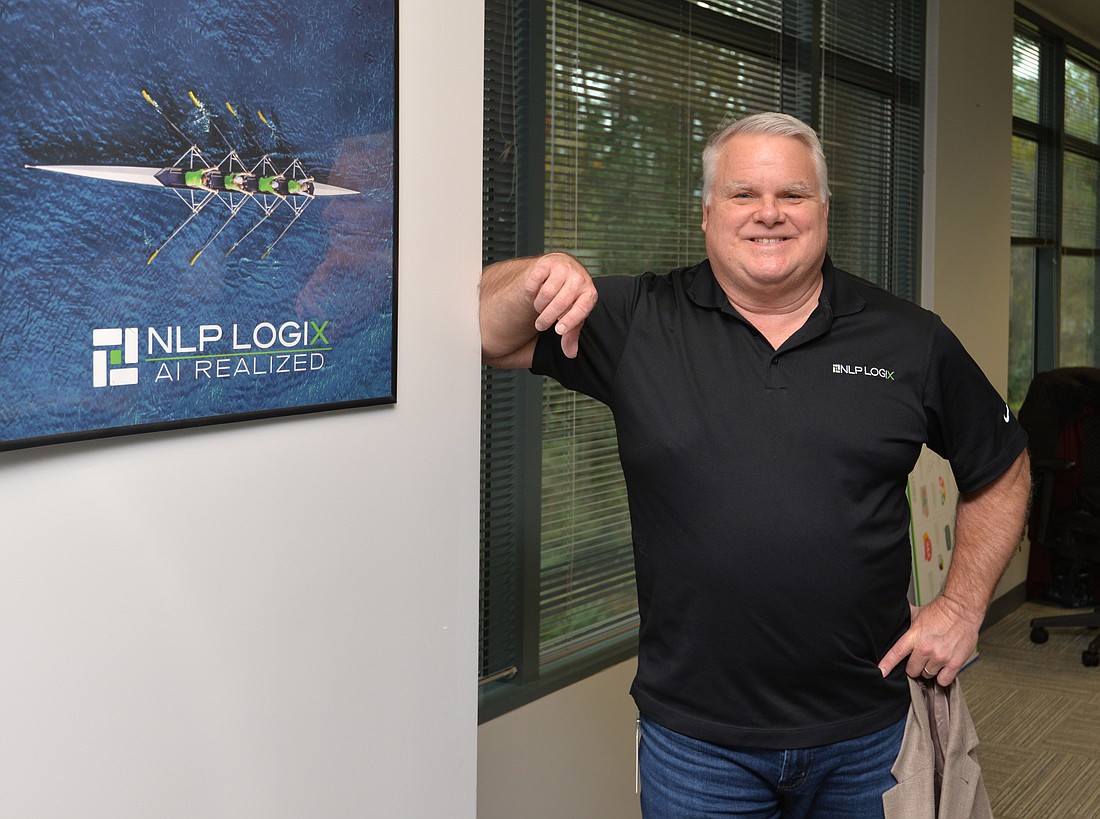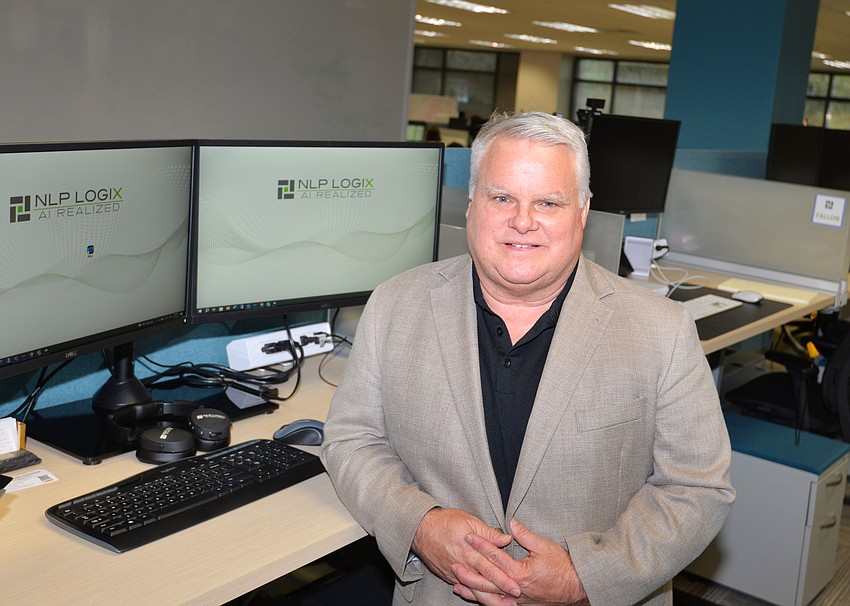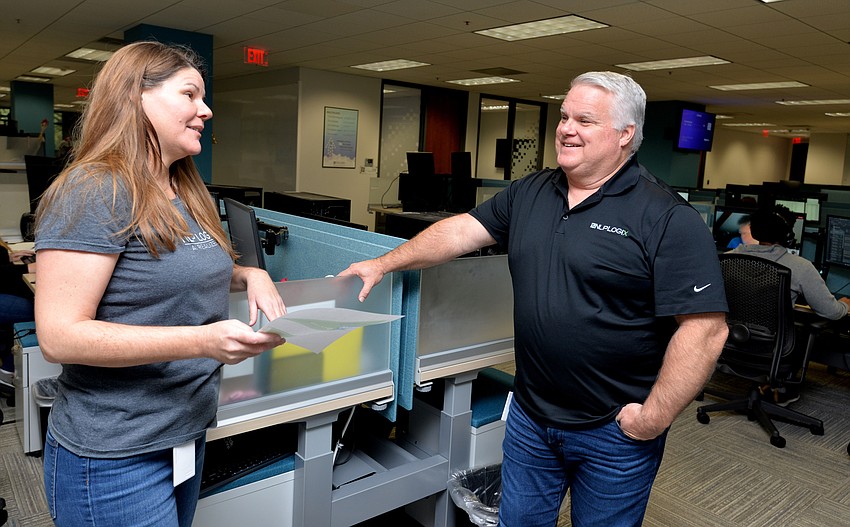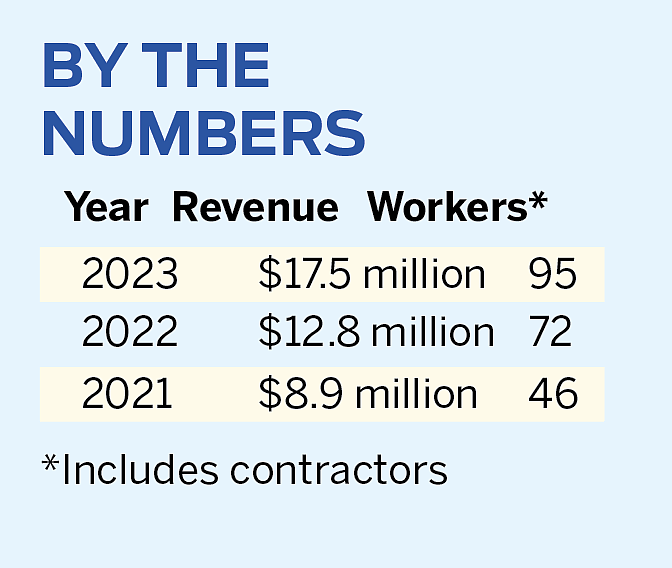
When NLP Logix, a custom AI and software services company, launched in 2011, much of the business world didn’t understand what it was offering.
Natural language processing, a form of artificial intelligence, wasn’t on the radar the way it is now, said CEO Ted Willich, 58, one of the company’s three co-founders.
It had been on his radar for years.
Medical Development International, or MDI, which he co-founded in 1993, used machine learning to estimate costs around health care in correctional facilities, Willich said.
Because MDI knew health care, the original business plan at NLP Logix was to use natural language processing, which is a form of machine learning, to integrate disparate health management data silos, he said.
“We knew the value of machine learning. It was just a matter of teaching it.”
He and co-founders Matt Berseth and Robert Marsh started the company with a small amount of seed capital from angel investors.
Generating business ”was more of a consultative sale, and it was a long sale and it was a hard sale,” Willich said.

“The first couple of years just sucked. It was horrible. No one knew what machine learning was.”
Then they caught a couple of breaks.
The first was with the Florida Poison Information Center Network.
In 2013, NLP Logix gave a presentation at UF Health Shands on building data models to predict the probability of someone being readmitted to a poisoning center for treatment.
After the presentation, Dr. Jay Schauben, director of the Florida Poison Information Center in Jacksonville, met with Berseth and Willich and asked if NLP Logix would consider a “data challenge.”
“Working with Dr. Schauben and the FPICN staff, we were able to successfully track the costs of those that were co-managed and those that were not,” Willich said.
“In the end, those that were co-managed had a much lower cost and demonstrated the tremendous value the Poison Control Centers deliver to the state of Florida and across the country.”
The study’s success resulted in a contract with the state’s three Poison Control Centers, and NLP Logix is now in 14 of the 54 poison control centers across the U.S., he said.
“That was our first big break and we’ve had a couple of others along the way. We got lucky.”
NLP Logix now has close to 50 clients and more than 100 employees. Its annual revenue of $17.5 million in 2023 is almost double its annual revenue of $8.9 million in 2021.
The company works in many fields and industries, Willich said. They include health care; government; education; human resources; property and casualty insurance; defense; and nonprofits.

“Our clients are all over the place,” he said. “That’s the beauty of technology.”
About 60 employees work at the company’s headquarters at 9000 Southside Blvd., Building 700, in the Gramercy Woods office park, which is also home to the Bank of America campus.
The remainder comprises employees working remotely in other states, and teams in the Philippines and Serbia.
The NLP Logix mantra: “Data science is a team sport.”
“We’re very much a people company,” Willich said. “We’re a work-from-work company, for the most part,” that recognizes collaboration and “the value of people being able to whiteboard, being able to interact.”
NLP Logix moved to its 10,800-square-foot office in December. It previously operated in a 5,900-square-foot space at 4215 Southpoint Blvd. for 12 years.
“We literally outgrew it,” he said.
The company plans to expand its space at its new headquarters.
A native of California, Willich was living in Northern Virginia, where MDI was headquartered, when he and the company moved to Northeast Florida in 2003.

Facing financial and legal problems, MDI, which Willich co-founded with his father, Richard, liquidated in 2012.
The issues were fueled primarily by lawsuits between Wells Fargo and MDI over loans, company management and expense claims by the bank against Richard Willich.
“Co-founding MDI with my father was a once-in-a lifetime experience,” Willich said.
“Starting with two people in a family room in Oxnard, California, talking about a vision for a company and seeing it grow to a height of over 200 employees and significant revenues over the ensuing 20 years was amazing,” he said.
“While it did not end well for many reasons, including an IP theft that did significant damage, it taught me that a tech-enabled services company could both deliver and generate significant value.”
MDI was also where he met Berseth and Marsh, as well as Fallon Gorman, their chief operating officer, “who has been a critical part of our success over the past few years growing the company,” Willich said.
”It was also at MDI where we first started using machine learning to optimize internal business processes, which is the core of our business model today. We were definitely early adopters of the AI movement in business.”
Willich said his wife, Julie, suggested the Logix part of the company name. He believes Berseth suggested the NLP.
NLP stands for natural language processing, “which is the core technology of teaching computers to talk, read, etc.,” Willich said in an email.
“You use it every time you say, ‘Hey Google or Siri’ and it is the core technology driving ChatGPT and other large language models that everyone is so excited about - including us,” he said.
“The funny thing is at the time, it was fairly criticized, because no one knows what natural language processing is, that’s not a name, you ought to do something else,” Willich said.
“We were like, ‘Yeah, that’s OK, we’ll just keep the name.’ And now, people think it’s brilliant.”
The company has a three-member innovation team charged with three tasks, Willich said: keeping on top of the technology and asking how to use to it solve a business problem for their customers; prototyping technology to build proof to customers of concepts that will work for them; and educating within the company on the “latest and greatest” developments taking place in the industry.
“That’s one of our growth techniques,” he said. “We’re not inventing the technology. We’re just keeping on top of the latest and greatest and applying it to a company’s business, or governments.”